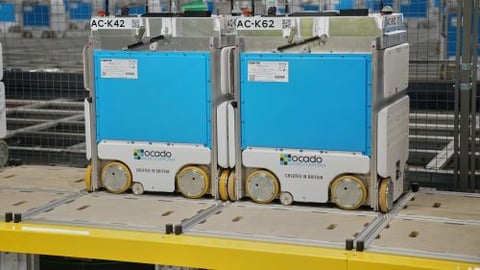Kroger's ESG Report Reveals Solid Results of Increasingly Integrated Practices
Following a year in which environmental, social and governance (ESG) principles and policies have taken center stage, The Kroger Co. is sharing the ways in which the organization is playing a leading role. The retailer has released its 2021 environmental, social and governance report, "Sharing Our Value," which demonstrates concrete ways that it's helping people and the planet and working to create an equitable, future-focused food system.
That’s a tall order in normal times, much less a year defined by a pandemic, weather extremes, economic uncertainties and social upheaval. Both because of and in spite of those challenges, Kroger reports that it's making strides toward its goals and setting new ones, integrating ESG practices into its business and enhancing opportunities for all of its stakeholders.
"Our strategic approach to ESG priorities is rooted in creating business value and uplifting our associates, customers and communities," said Keith Dailey, Kroger's group VP of corporate affairs and chief sustainability officer. "We are acutely focused on how we will further advance our purpose to feed the human spirit as a leading retailer, employer and community partner."
One of Kroger’s ESG pillars is people, and to that end, the organization highlighted efforts to aid shoppers, its employees and community members at large. Among other achievements, the retailer directed $301 million in foods and funds to communities, $33 million in combined foundation grants to communities, and 641 million meals to those in need, including 90 million pounds of food donated through Kroger’s Zero Hunger | Zero Waste Food Rescue program. Through its health care and pharmacy arm, the company administered COVID-19 vaccines to millions of Americans.
Internally, the company assisted its people by increasing the average wage for hourly store associates to $15.50, with a nearly $20-per-hour compensation when factoring in comprehensive benefits. This year, Kroger also worked with associates and leaders to create a collaborative diversity, equity and inclusion plan outlining immediate and longer-term steps to promote change in the workplace and communities.
Focusing on another ESG pillar of protecting and restoring natural resources, Kroger reported that it reduced its total carbon emissions by 11.6% in 2020, cut total food waste generated in retail stores by 7.2% and lowered its total water consumption by 10% between 2019 and 2020. This past year’s sustainability results were achieved through a variety of initiatives, including a new recycling program launched in partnership with Trenton, N.J.-based TerraCycle and the doubling of Fair Trade Certified ingredients for Kroger’s store-brand products.
As it worked toward its third pillar of building more responsible and inclusive global systems, Kroger reported tangible accomplishments in the areas of equity and sustainability. Among other efforts, the retailer increased its investment in diverse suppliers by 21% over the previous years. As it updated practices and policies related to the global supply chain, the company revealed that it joined the Global Coalition for Animal Welfare, and is now sourcing 86% of its wild-caught seafood and 98% of its farm-raised seafood from fisheries and farms that meet its seafood sustainability requirements. Those are just two examples of recent initiatives.
While the 2021 ESG report mapped out results from the past year, Kroger is also looking ahead, sharing metrics for longer-term goals across its three defined pillars. The organization aims to direct a total of 3 billion meals to communities by 2025, hit a 30% cumulative reduction in greenhouse-gas emissions by 2030 and achieve zero waste company-wide and zero retail food waste to landfills by 2025, among other targets.
The complete 2021 ESG report is now available on Kroger’s website.
Cincinnati-based Kroger employs nearly half a million associates who serve 11 million-plus customers daily through a digital shopping experience and almost 2,800 retail food stores under a variety of banner names. The company is No. 3 on The PG 100, Progressive Grocer’s 2021 list of the top food and consumables retailers in North America.






